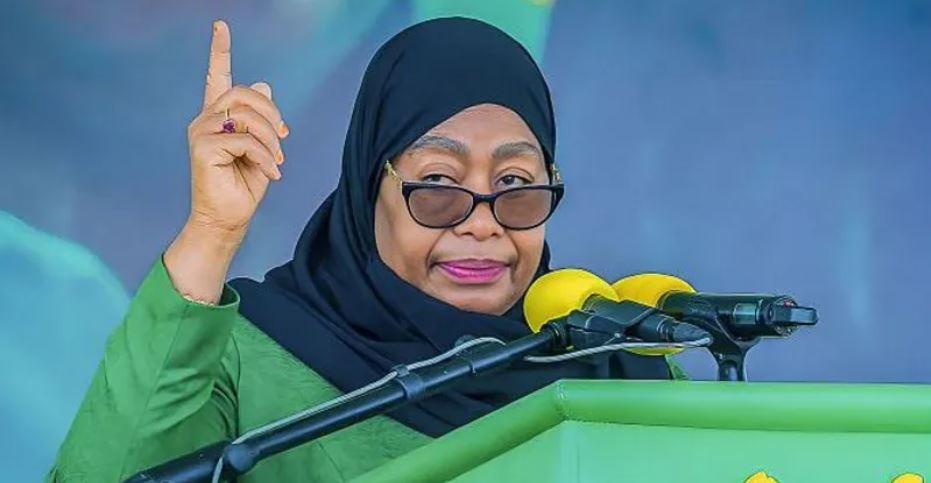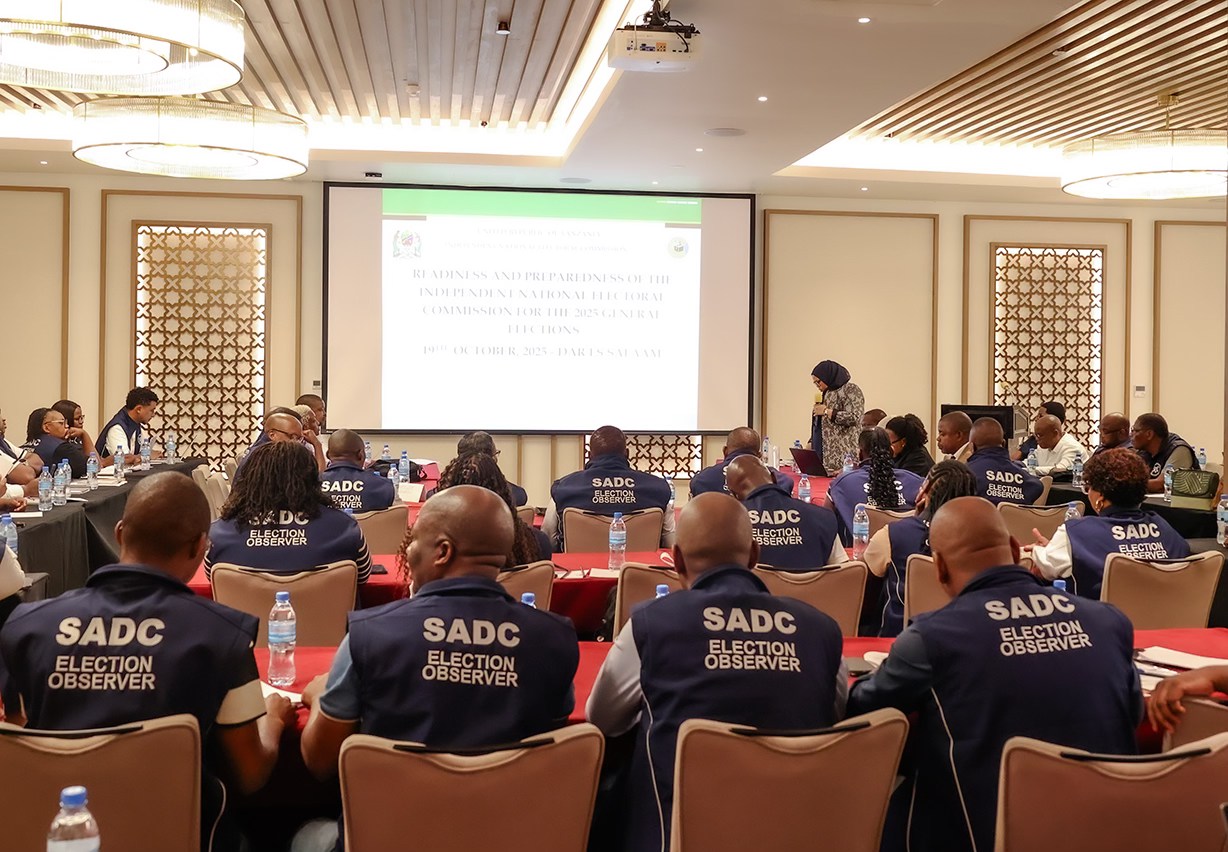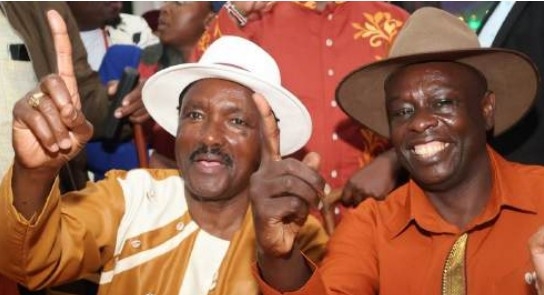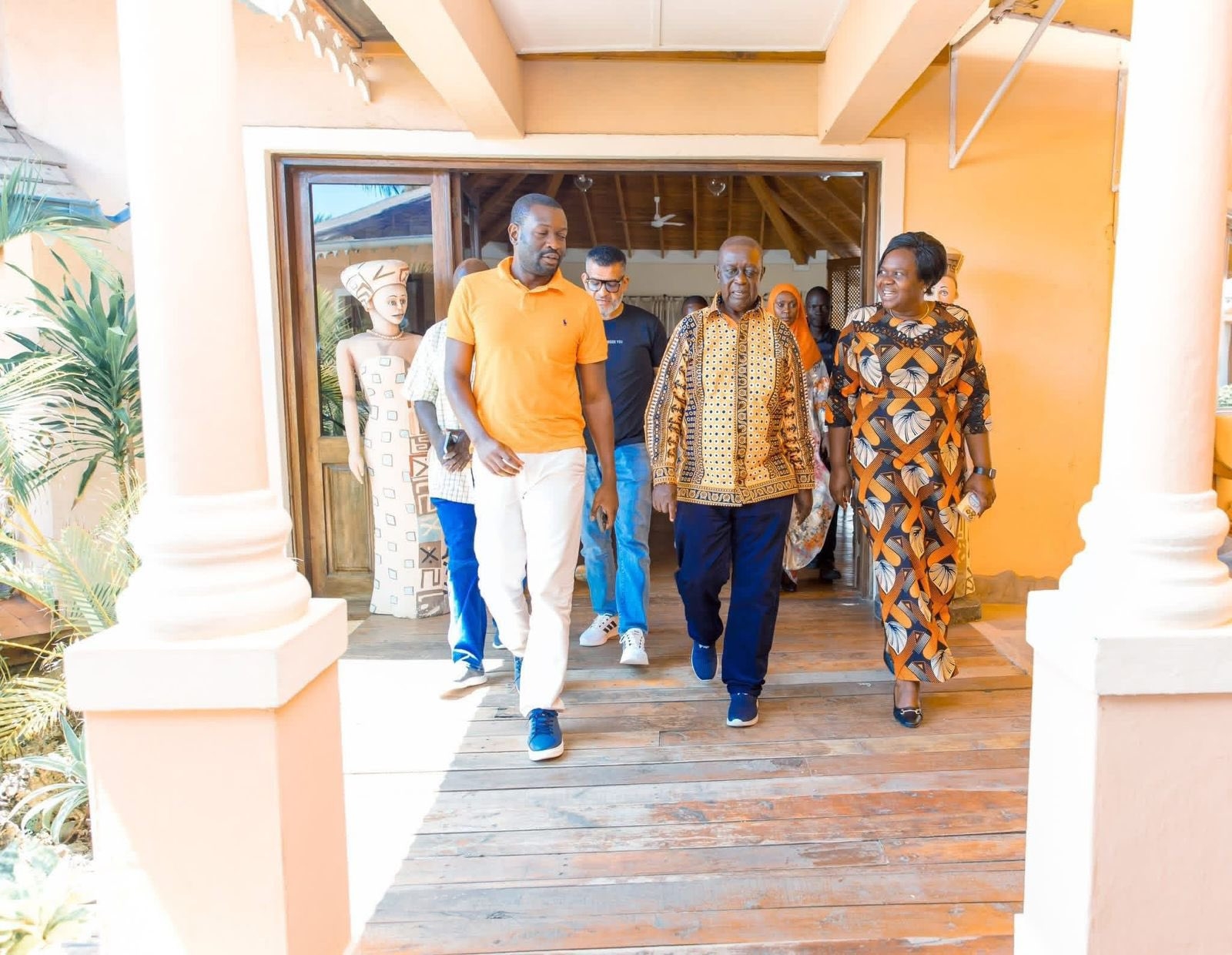
 SADC Election Observers during a training on October 19, 2025./FILE
SADC Election Observers during a training on October 19, 2025./FILE
The Southern Africa Development Community (SADC) says the recently concluded Tanzania elections fell short of the threshold of being declared free and fair.
The SADC Observer Mission (SEOM), in its preliminary report, has cited intimidation of opposition leaders, restricted freedoms, and a lack of transparency throughout the electoral process.
Former Malawi Speaker of Parliament Richard Msowoya, who led the SADC mission, said on Monday that while voting day was largely peaceful, in most areas, voters could not freely express their democratic will.
Msowoya said the polls fell short of the requirements of the SADC Principles and Guidelines Governing Democratic Elections (2021), which is a guiding benchmark for free, fair, and credible polls among member states.
The mission observed that in some polling stations observed, there were multiple orderly stacked ballots in the ballot box during voting, which created a perception of ballot stuffing and an impression that individual(s) cast more than one vote at a time with the intention to cheat the election system.
“In view of the Mission observations as detailed above, and mindful of the preliminary nature of this statement, it is the SEOM's tentative conclusion that, in most areas, voters could not express their democratic will,” the SEOM report released in Dodoma on Monday states.
It adds, “Overall, the 2025 General Election in the United Republic of Tanzania fell short of the requirements of the SADC Principles and Guidelines Governing Democratic Elections.”
Related to the political and security environment, the mission noted concerns that there were increasing covert and overt limitations on the right to freedom of expression.
“It was also the view of these stakeholders that there is heavy censorship of online information platforms. The mission observed that some social media platforms were not accessible, which could impact citizens' ability to express and receive political opinions.”
The mission deployed a team of 80, comprising 66 observers, 13 SADC Secretariat staff, and one SEAC member.
The SADC observers were drawn from ten (10) member states, namely, the Kingdoms of Eswatini and Lesotho and the Republics of Botswana, Namibia, Malawi, Mozambique, Seychelles, South Africa, Zambia, and Zimbabwe.
The SADC mission reported that its observers initially experienced challenges in consulting with key stakeholders, particularly the Independent National Electoral Commission (INEC), as they had not been issued with introduction letters together with accreditation identification cards as required by the law.
There was a violation of the requirement of the SADC Principles and Guidelines Governing Democratic Elections (2021) that Member States “Facilitate the observation of the entire electoral cycle of their national elections by SEOMs, including the deployment of Goodwill Missions, Long Term Observers, Short Term Observers, and pre-election assessment processes.”
On election day, the team observed some ‘calmness and peace,’ which was later attributed to the fear of state machinery and intimidation of voters in most areas.
The observers in Mbeya, Dodoma, Arusha and Dar Es Salaam Regions reported incidents of violence where members of the police were firing arms
“However, a few stakeholders cautioned that the general calm and peace belies covert acts of general intimidation of the population and opposition political parties and candidates. These stakeholders cited the alleged abductions of some political activists. They also described a tense and intimidating political atmosphere.”
The team said although state-owned television had scheduled timeslots to cater for all political parties' messaging throughout the campaign period as well as privately owned media houses, the state broadcaster was heavily skewed in favour of the ruling CCM party, while private media engaged in self-censorship for fear of reprisals.
“The Mission was further informed that one of the fundamental reasons for the lack of visibility of opposition parties in the media and public spaces during the campaign period was limited financial resources. Some stakeholders attributed this to the perceived fear that donors might face negative appraisals when they fund opposition parties.”
Although Samia Suluhu Hassan, who was sworn into office today, scored an astronomical figure of almost 98 percent, the SADC team says it noted a very low voter turnout in all polling stations observed, further leading to questions about the credibility of the polls.
Despite the damning verdict, the SEOM has appealed for calm, urging Tanzanians to resolve grievances through lawful channels and avoid violence.
“The Mission appeals to the citizens of the country to channel their concerns through established legal procedures and processes and not resort to violence or threats thereof.”











